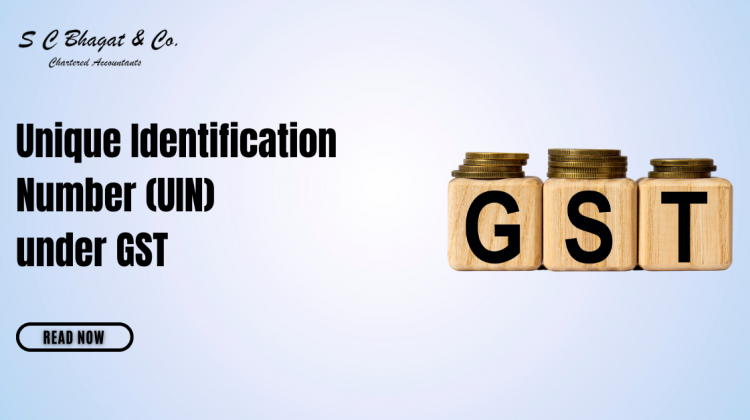The implementation of the Goods and Services Tax (GST) in India marked a paradigm shift in the taxation landscape, streamlining processes and enhancing transparency. Among the various provisions within the GST framework, the Unique Identification Number (UIN) holds a distinct significance. Let’s delve into the world of UIN and understand its role in the GST ecosystem. Unique Identification Number (UIN) under GST SCBC.
What is the Unique Identification Number (UIN) under GST?
The Unique Identification Number (UIN) is a special identifier issued by the government to certain entities that are not liable to pay GST but are involved in transactions subject to the tax. UIN is primarily designed for diplomatic missions and embassies, as well as international organizations and bodies recognized under the United Nations.
Eligibility Criteria for UIN under GST
Entities eligible for a UIN include:
- Foreign diplomatic missions and consular posts.
- International organizations and bodies enjoying privileges and immunities under the United Nations (Privileges and Immunities) Act, 1947.
Significance of UIN under GST
UIN serves multiple purposes within the GST framework:
- Tax Exemption: Entities with a UIN are exempted from paying GST on their purchases and imports.
- Distinctive Identification: UIN provides a unique identity to eligible entities, differentiating them from regular taxpayers.
- Documentation: When these entities engage in transactions, they use the UIN on invoices, bills, and other relevant documents, signifying their special status.
Process of Obtaining a UIN under GST
Entities seeking a UIN need to follow a specific process:
- Application: Eligible entities must submit an application for a UIN to the GST authorities. The application is usually made through the online GST portal.
- Verification: The application is verified by the concerned authorities, ensuring the applicant’s eligibility as per the prescribed criteria.
- Issuance: Upon successful verification, a UIN is issued to the entity. This UIN is used for all transactions involving GST.
Usage of UIN in Transactions
Entities with a UIN need to adhere to certain guidelines while using it in transactions:
- When making purchases or imports, the UIN must be mentioned on invoices, bills of supply, and other related documents.
- GST invoices received by entities with a UIN should also contain the supplier’s GSTIN, name, and address, along with other mandatory details.
Claiming Refunds under UIN
While entities with a UIN are exempt from GST, they can still claim refunds on taxes paid on their purchases and imports. The refund process for UIN holders involves filing a claim through the GST portal and submitting supporting documents.
UIN and Compliance
Entities holding a UIN must maintain proper records of their transactions, purchases, and imports. They are also required to file periodic returns, showcasing their transactions without any tax liability.
In conclusion, the Unique Identification Number (UIN) under GST is a testament to the inclusive nature of the taxation system. It acknowledges the distinct status of diplomatic missions, embassies, and international organizations while ensuring that they remain compliant with the regulatory framework. By providing tax exemptions and facilitating easy documentation, the UIN streamlines the process for eligible entities, contributing to the overall efficiency of the GST ecosystem.

